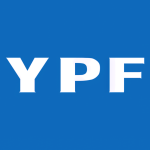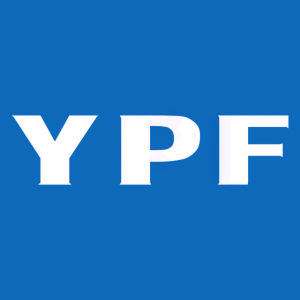Welcome to our dedicated page for Ypf Sa SEC filings (Ticker: YPF), a comprehensive resource for investors and traders seeking official regulatory documents including 10-K annual reports, 10-Q quarterly earnings, 8-K material events, and insider trading forms.
Reading YPF’s cross-border disclosures can feel like navigating a refinery maze. The company’s integrated upstream wells, massive Vaca Muerta shale investment, and downstream refinery network generate hundreds of pages that mix Argentine GAAP nuances with U.S. SEC language. Whether you need production figures, subsidy details, or currency risk notes, deciphering a 300-page 20-F (the annual report 10-K simplified equivalent) can drain valuable analysis time.
Stock Titan’s platform resolves that challenge. Our AI-powered summaries turn dense accounting tables into plain-English insights, flagging the metrics that move YPF’s valuation. You’ll receive real-time filing updates the moment an 8-K posts—see “YPF 8-K material events explained”—and instant alerts on YPF insider trading Form 4 transactions. Need the next YPF quarterly earnings report 10-Q filing? It lands here first with an earnings report filing analysis that highlights refinery utilization, lifting costs, and peso vs. dollar debt swings. Every document—20-F, 6-K, 8-K, F-3, proxy—comes with context so you understand why it matters, not just what it says.
Investors routinely consult this page to: monitor YPF Form 4 insider transactions real-time before material announcements; compare segment margins across upstream, downstream, and gas-power units; review YPF proxy statement executive compensation; or track how management funds shale development. If you’re “understanding YPF SEC documents with AI,” this is your starting point. Comprehensive coverage, expert commentary, and machine learning that spots trends—everything you need to follow Argentina’s flagship energy producer in one place.
YPF Sociedad Anónima reported that on January 7, 2026 it repurchased a total of Ps. 20,596,912,800 of its Class XXI Notes, equivalent to a par value of US$ 14,000,000. These Class XXI Notes, identified as YMCMO, were issued in January 2023 under the company’s Frequent Issuer framework and mature in January 2026.
The notes were bought back at an average price equal to 99.89% of their nominal value and will be held in YPF’s portfolio. This transaction reduces the amount of Class XXI Notes held by external investors and slightly lowers YPF’s outstanding debt in this specific series.
YPF Sociedad Anónima reports that on December 23, 2025 it repurchased its Class XXI Notes (YMCMO) for a total of Ps. 7,648,517,984.48, equivalent to a par value of US$ 5,270,224. The notes were bought at an average price equal to 99.73% of their nominal value and will be held in the company’s portfolio. These Class XXI Notes were originally issued in January 2023 under YPF’s Frequent Issuer regime and mature in January 2026.
YPF Sociedad Anónima reports that it has completed the sale of its share capital in fertilizer company Profertil S.A. to Agro Inversora Argentina S.A., part of the Adecoagro Group. The closing took place on December 18, 2025 after all conditions precedent were fulfilled and on the terms previously disclosed.
YPF also states that the final economic result of this transaction will be reported when it publishes its financial statements as of December 31, 2025, giving investors a future view of the impact on its financial performance.
YPF Sociedad Anónima reports that it has accepted an offer from Agro Inversora Argentina S.A., part of the Adecoagro group, to sell its shares in Profertil S.A..
The deal covers 391,291,320 Class B shares, representing 50% of Profertil’s share capital and voting rights, for a purchase price of US$635,000,000, subject to a price adjustment mechanism in the share purchase agreement. The closing of the transaction depends on certain conditions precedent being fulfilled.
YPF S.A. reports a related-party transaction involving the extension of its LNG Escobar joint venture contract with Energía Argentina S.A. (ENARSA) until January 31, 2029. The agreement covers continued collaboration at the Escobar liquefied natural gas terminal in Argentina.
The company states that its Audit Committee has issued a formal opinion on this extension, concluding that the contract’s terms and conditions are in line with normal and customary market standards for similar agreements between independent parties. The Audit Committee’s report is available for shareholders to review at YPF’s registered office in Buenos Aires.
YPF Sociedad Anónima reported a change in its Board of Directors. At a meeting held on December 11, 2025, the Board accepted the resignation of Class D Regular Director Marilina Jaramillo, who stepped down for strictly personal reasons. The notice was signed by Margarita Chun, Market Relations Officer of YPF S.A., in line with disclosure requirements for Argentine and international securities regulators.
YPF Sociedad Anónima reported that it has repurchased part of its outstanding debt. Between December 2 and 3, 2025, the company bought back Class XXI Notes with a total amount of Ps. 29,308,529,179, equivalent to a par value of US$ 20,209,098, which will now be held in its portfolio. These Class XXI Notes were issued in January 2023 under YPF’s Frequent Issuer framework and mature in January 2026. The repurchase was carried out at an average price equal to 99.46% of the notes’ nominal value, indicating that the buyback was done close to par.
YPF Sociedad AnónimaEnap, together with Vista, Shell Argentina and Equinor. The agreements run until June 2033 and cover an initial combined volume of up to 70,000 barrels per day, which is described as potentially generating an estimated $12 billion in revenues for Argentina over the life of the contracts.
Within this framework, the supply agreement between YPF and Enap provides for exports by YPF of an initial volume of approximately 32,000 barrels per day, equal to 45.45% of the total agreed volume. The companies highlight that the rehabilitation of the Trasandino Pipeline (OTA) and the construction of the Vaca Muerta Norte Pipeline have helped deepen the relationship with Enap, with about 40% of exports from the Neuquén basin currently transported through this system.
YPF Sociedad Anónima reported a change in its Board of Directors for Class D shares. At a meeting held on November 18, 2025, the Board accepted the resignation of Mr. Carlos Manuel Bastos as Regular Director for Class D shares, who stepped down for strictly personal reasons. The Supervisory Committee for Class D shares then appointed Mr. Lisandro Catalán as the new Regular Director for Class D shares, who will serve until the election of new directors by the Shareholders’ Meeting.
YPF S.A. reports that it has repurchased Ps. 57,827,506,224 of its Class XXI Notes (YMCMO), equivalent to a par value of US$ 39,874,776, between November 3, 2025 and November 12, 2025. These notes were issued in January 2023 under the company’s Frequent Issuer regime and mature in January 2026. The repurchase was carried out at an average price equal to 99.00% of their nominal value, and the notes acquired will be held in the company’s portfolio.


